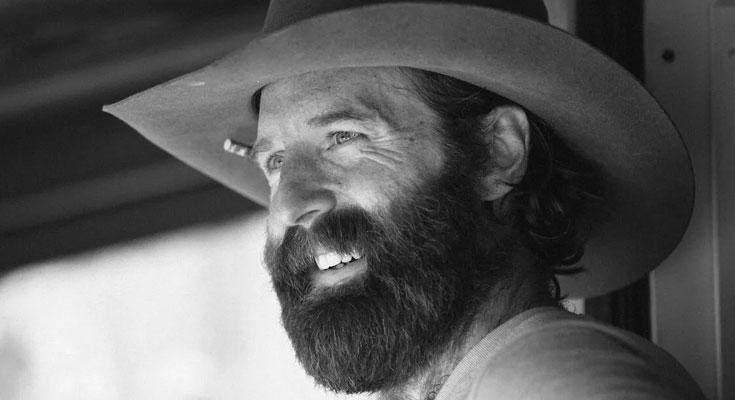By Sean Dietrich, Sean of the South
I was eleven. I was invited to try out for the Christmas community choir. A lady visited our church to conduct the auditions.
I had been practicing for three weeks, learning the lyrics to “O Little Town of Bethlehem.”
My father, the welder, took me to the audition after work. Before it was my turn to sing, he gave me a pep talk.
“Knock it outta the park,” he said. “Like Mickey Mantle, you hear?”
I sang for the lady in the wire-rimmed glasses who held the clipboard. She was less than impressed with me.
“Stop singing!” she shouted, interrupting my song. “We’re looking for something else, I’m sorry. Next please?”
My father stormed forward from the back of the church. He looked like he was on his way to pick a fight with an umpire.
“Now wait a minute, Lady,” he said. “I demand you let my boy finish his song. He’s been working on it for weeks. What kind of heartless woman doesn’t let a kid finish his song?”
The woman’s mouth dropped open. She looked at my father like he’d lost his mind.
She sat down and asked me to sing it again. I cleared my throat. I sang. I did much better than before. It wasn’t a home run, per se, but more like an outfield triple.
I got the part.
I was fifteen feet tall. Until that day I’d never done anything special with my life—unless you counted the noises I could make with my armpits. I was a chubby kid with awkward features, I was neither handsome, nor athletic.
But now I was a soloist.
It took months of preparation to get it right. Each day after school, I would rehearse for my mother in the kitchen while she made supper.
On the night of the performance, my father arrived home an hour late. He wheeled into our driveway, kicking gravel behind his tires.
My mother flew off the porch, carrying my choir robe on a hanger. “You’re late!” she shouted at him. My mother gasped when she saw my father.
“You’re filthy!” she said. “You can’t go like that!”
His denim clothes were stained, he smelled like diesel, his skin was painted with soot.
“The boss made me work late,” he said. “Ain’t got time to change.”
My mother wished me luck with a kiss on the forehead and stayed behind. My father sped through the night.
We arrived at a Presbyterian church with lots of cars in the parking area. Families were walking into the chapel dressed in Christmas finery.
“I think I’m gonna be sick,” I told Daddy.
“You’re gonna be fine.”
“But what if I mess up?”
“You won’t.”
“I gotta puke.”
“Listen to me,” he said. “Singing is just like baseball, you stand at the plate, you relax, you hit the ball. Now you’re gonna go knock that ball outta the park, got it?”
I almost lost my lunch on his boots.
The chapel was ornate. I have never seen so many people crammed into one place, there must’ve been three counties in attendance. A small community orchestra played. The choir sang. Then came my solo.
And…
I choked.
I missed my cue. Maybe it was because of the large audience, or the three-story stained glass, or the beautiful choir. I opened my mouth, but nothing came out.
The music came to a screeching halt. The choir director almost passed a kidney stone. Everyone knew something was wrong. The silence of the hall was deafening.
This is how I would die, I thought. On a stage, wearing a starched robe.
Then, I saw him.
He was in the back of the room, a mile away. The sooty man, sitting in a pew surrounded by people in fancy clothes. People who had scooted away from him.
And that look he wore. It was pride. His boy was on the platform.
Suddenly, I was less worried. I forgot where I was. The audience disappeared. The next thing I knew, I was singing.
By the second verse, every voice in the audience had joined me. Hundreds of voices, following mine. And from the back of the chapel, candles were being lit, one by one, until the place was illuminated with a million lights.
When the concert finished, my father met me backstage. His eyes were raw and red. There were tear-trails on his dirty cheeks.
The choir director congratulated me. Then, she shook my father’s filthy hand.
“Merry Christmas,” she said.
But he couldn’t seem to speak. All he could manage to say was, “That’s my boy.” Then he said it again.
He took me into town to eat a chili dog. We ate on the tailgate. We stayed up late. We laughed.
That was our last Christmas together.
If you get a chance today, tell your kids how proud they make you.
Sean Dietrich is a columnist and novelist known for his commentary on life in the American South. He has authored nine books and is the creator of the “Sean of the South” blog and podcast. The views and opinions expressed here are those of the author and do not necessarily reflect the policy or position of 1819 News. To comment, please send an email with your name and contact information to: Commentary@1819News.com









